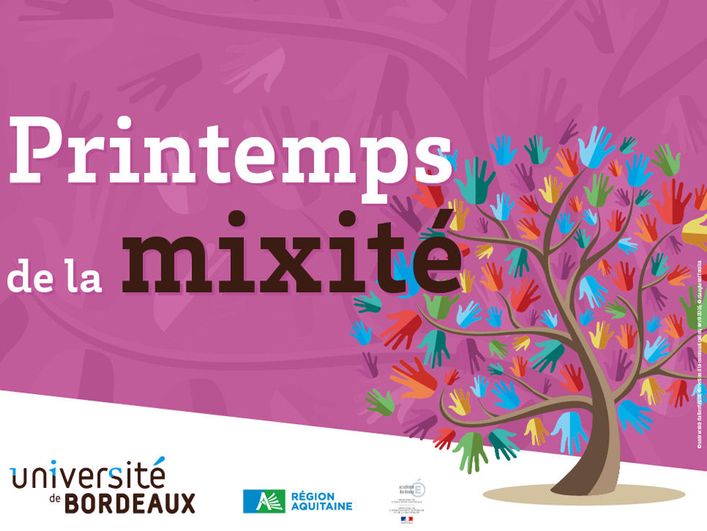“Cogni-whatscience? ”
Who would have thought that a degree in psychology would lead to a PhD in cognitive science? There was nothing to suggest that Cécile Mazon would go on to join an institute specialising in digital sciences. Speaking to two classes of fifth year pupils from Lycée Condorcet in Bordeaux and from Les Iris school in Lormont, the 27 year-old went back over the journey that took her from secondary school to her PhD. After completing her baccalauréatin science, she made the decision to focus her studies on psychology. “You're wasting your future, you're so good at maths!” she was told, but she persevered until a revelation came to her: she discovered how the brain works. Her fascination for this subject saw her continue with her studies in cognitive psychology, but the cost of studying a Master’s proved prohibitive, and she moved instead towards a Master’s in cognitive science. Her second revelation came during her time on this course, where she was able to bring together her knowledge of psychology while developing further knowledge of IT and technology. It was during her time spent as an intern with Inria that she realised how complementary these two disciplines could be, at which point she began to focus on human-machine interaction. This sense of curiosity would spur her on towards her PhD, where she studied applications capable of improving everyday life for people with disabilities.
“Believe in yourself”
Emmanuelle Saillard and Lisl Weynans also spoke alongside Cécile Mazon that day. What all these women have in common is that they are operating in what is seen traditionally as a man’s field, succeeding in areas in which they were not necessarily expected to do so. As a research fellow and lecturer respectively, Saillard and Weynans were put off by their peers at key moments in their careers, including when they signed up to compete for the positions they now occupy, but they have shown themselves capable of proving the doubters wrong. Digit’Ellesis a workshop that aims to cross the professional pathways of women working in research at different stages in their careers, giving them an opportunity to share their doubts, to discuss the obstacles they’ve come up against and to reveal the lessons they’ve learned from times when the wheels have come off. They all have a positive message for these secondary school pupils, who will eventually have to make what are often difficult decisions when it comes to their next step after leaving school. “Believe in yourself, don't always listen to what other people have to say. Hang in there and don’t let people discourage you”- these were the words that Cécile Mazon chose to finish her speech, a message sure to have resonated with her audience.
Would you like to see your pupils benefit from these sorts of testimonies? To discover the other professions available within our research centre? Contact the mediation and communications department to organise a meeting at your school.
